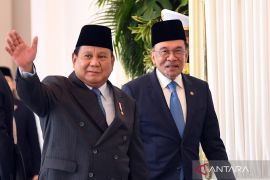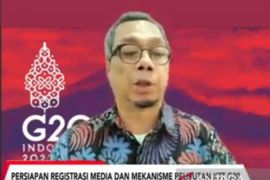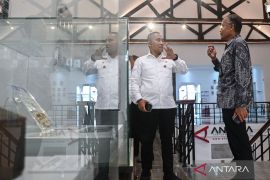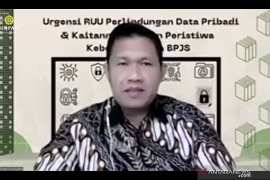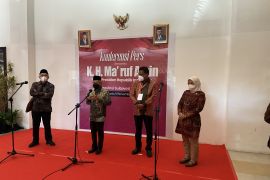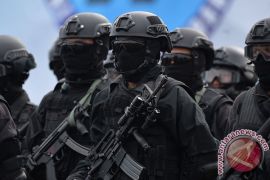The incident claimed seven lives, including that of five terrorists, who had also attacked the Starbucks coffee shop in a building located across the Sarinah mall.
The deaths of the armed attackers were confirmed by Deputy Police Chief Com. Gen. Budi Gunawan, who also called on the people living and working in the capital city to remain calm and alert, saying both the security apparatus and the community needed them.
The assault was condemned by various sections of society. President Joko Widodo even ordered law enforcers to hunt those responsible for the attack, and crush the terrorist networks in the country.
The head of states message was obvious and directed at those in charge of defending the safety of all Indonesians and foreigners living and working in the country.
For the people at large, Chairman of the Muhammadiyahs special branch in Germany, Ridho Alhamdi called on Indonesians to strengthen their unity in combating all forms of terrorism. "Certain parties want to ruin Indonesia. Therefore, we must be united in safeguarding the Unitary State of the Republic of Indonesias integrity," said Ridho, while commenting on the act of terror in Jakarta.
The incident has added to the list of deadly assaults carried out by terrorist cells in Indonesia. From 2000 to 2012, more than a dozen attacks took place in the capital city, including the Australian embassy bombing on September 9, 2004, and the JW Marriott and Ritz-Carlton hotel bombings on July 17, 2009.
However, both the government and the people of Indonesia, who love peace and harmony have never surrendered to the perpetrators and bowed to their unjustified demands. Instead, the people have shown their courage, sympathy and solidarity as represented by a hashtag on Twitter #Kami Tidak Takut (We Are Not Afraid) to respond to the Jakarta attack.
The hashtag won support from many parts of the world echoing these courageous words: "We were not afraid yesterday. We are not afraid today. Well have never been afraid tomorrow and forever." (https://twitter.com/hashtag/KamiTidakTakut?src=hash).
The incident also attracted widespread media attention from both Indonesias and foreign media outlets. The Cable News Network (CNN), for instance, released news headlines, such as "Jakarta attacks: Deadly blasts, shootout in Indonesian capital," while Al Jazeera America published, "ISIL claims responsibility for deadly gun, bomb assault on Jakarta" on their respective websites.
For various media outlets in the country, the deadly attack seems to have been like a battle ground aimed at winning the audiences attention. The countrys popular news sites, such as Antaranews.com, Kompas.com, and Tempo.co, published photos taken by their respective photo journalists on the ground.
Some of the released photos showed an exchange of fire between police officers and armed attackers, and a gunman, who did not cover his face with a mask, and was seen with his gun pointing at an on-duty policemen. In their effort to win the public attention, mainstream television stations, such as TV One, Metro TV, and Kompas TV provided the audiences with real-time news reports and in-depth-interviews by inviting credible terrorism analysts.
As revealed in Bruce Hoffmans seminal work entitled "Inside Terrorism" (2006), the media and terrorists enjoy a symbiotic relationship because both benefit from "the high levels of media attention to terrorism" (Walsh, 2010:5).
For the terrorists, they can communicate the goals of their acts of terror and grievances to a wider audience, while the media outlets enjoy a larger audience base by exploiting the incidents (Walsh, 2010:5).
A study by James Igoe Walsh, researcher at the University of North Carolina at Charlotte, entitled, "Media Attention to Terrorist Attacks: Causes and Consequences" (2010) further revealed that public fear and anxiety are likely increased due to the exposure of media coverage of terrorism.
Considering what Walsh has suggested in his study, mass media in Indonesia need to remain wise in their manner of covering terrorism-related events, as the one that occurred in Jakarta on Thursday.(*)
Reporter: Rahmad Nasution
Editor: Heru Purwanto
Copyright © ANTARA 2016
